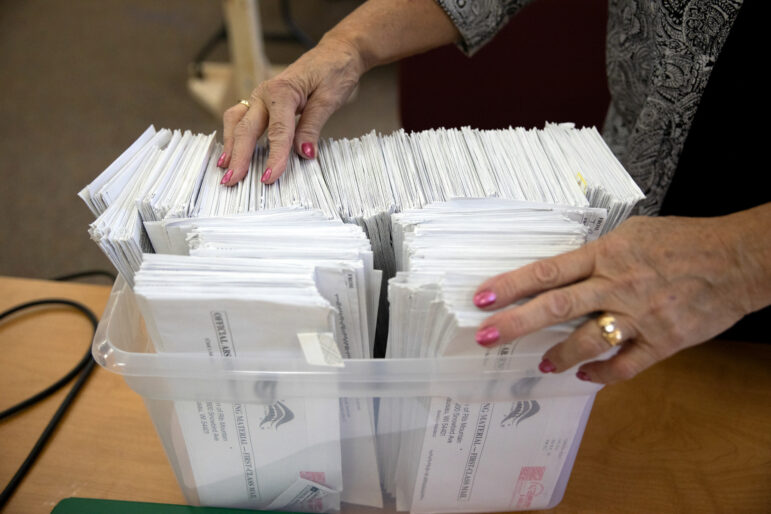Judge Throws Out Lawsuit Challenging Absentee Ballot Requirements
Now-dismissed lawsuit is just one of many concerning absentee ballots and their handling.
A federal judge has dismissed a lawsuit from a Democratic law firm that sought to challenge Wisconsin’s rules requiring a witness to certify absentee ballots.
Under Wisconsin law, absentee voters need to complete their ballots in the presence of an adult witness. That witness, who generally needs to be a U.S. citizen, must complete a certificate with the witness’ signature and address.
The Elias Law Group sued the Wisconsin Elections Commission last year on behalf of four voters in the state.
The lawsuit described issues, including health problems and overseas travel, that made it difficult for the voters to find a U.S. citizen to attest to their absentee ballots. The suit filed in U.S. District Court for the Western District of Wisconsin argued the witness requirements are burdensome, and violate the federal Voting Rights Act, as well as as the federal Civil Rights Act.
But, in a ruling Thursday, U.S. District Judge James D. Peterson rejected those arguments.
“It may be debatable whether the witness requirement is needed, but it is one reasonable way for the state to try to deter abuses such as fraud and undue influence in a setting where election officials cannot monitor the preparation of a ballot,” Peterson wrote. “Both of plaintiffs’ novel claims represent attempts to apply federal voting rights law beyond its proper scope.”
The now-dismissed lawsuit is only one front in an ongoing legal battle about when absentee ballots should be counted in Wisconsin.
On Monday, Wisconsin’s Supreme Court is set to hear arguments in a separate case brought by Democrats seeking to overturn a ban on absentee ballot drop boxes.
The challenge comes ahead of November’s election, which includes a U.S. Senate race and a rematch between President Joe Biden and former President Donald Trump.
Judge dismisses lawsuit over absentee ballot signature requirements was originally published by Wisconsin Public Radio.
If you think stories like this are important, become a member of Urban Milwaukee and help support real, independent journalism. Plus you get some cool added benefits.





















There are four major constitutional amendments relating to citizens right to vote, 15th, 19th, 24th and 26th along with the Voting Rights Act of 1965 which should be legal precedents for State and Federal Judges from which to rule on the voting rights case brought before them. Yet these are most often dismissed with reasoning be that voting restrictions are needed to prevent fraud which rarely happens.